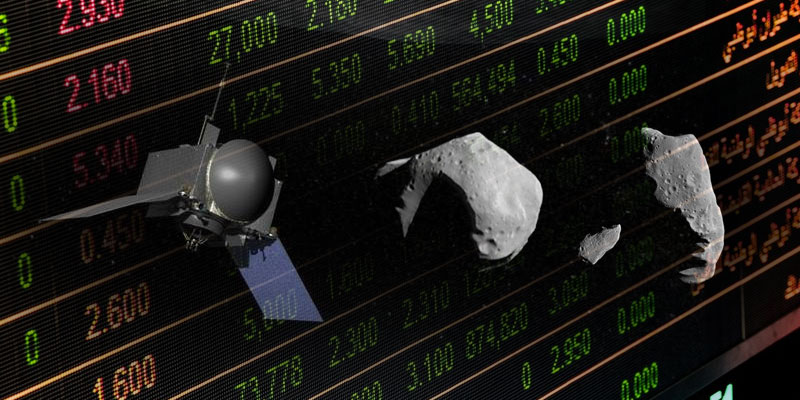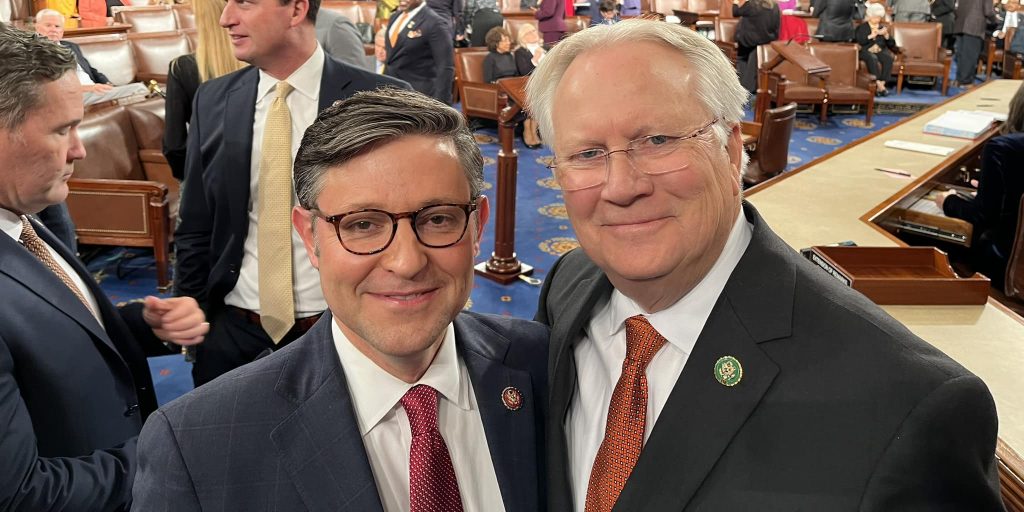An asteroid could wipe out all life on Earth, so yes. But what if we mined and brought an asteroid’s valuable metals to Earth? NASA’s plan to send a probe to an asteroid generated some out-of-this-world economic claims.
The asteroid belt between Mars and Jupiter may be the remnants of a proto-planet that broke up long ago. NASA plans to visit 16 Psyche, a heavy metal asteroid, which astronomers believe is mostly nickel and iron, but may contain precious metals like gold and platinum. The reported $10 quintillion (a 1 with eighteen zeros behind it) market value for Psyche’s metals seems to have been pulled out of thin air, or the vacuum of space.
Would the metals in 16 Psyche make everyone on Earth become a billionaire? Or would metals markets crash and somehow destroy the world economy? Economics suggests neither extreme.
We live in a world of scarcity, meaning that our desire for goods and services exceeds our ability to produce them. Production requires raw materials and, more importantly, know-how. Knowledge lies behind technology, from agriculture to supercomputers; discovering productive uses for nature’s bounty creates natural resources. The heavy metal asteroids have existed since before the first humans but will only become resources if we learn how to make space mining a reality.
Resource availability frequently constrains production. We cannot make metals or petroleum out of nothing. The harder we must toil to acquire resources, the greater their cost because everyone must be compensated for their hard work.
If technologically and economically feasible, space mining will increase the supply of metals and lower their prices. This will enable production of more goods at lower prices. Our standard of living will unambiguously rise.
But might a collapse of gold and precious metals prices bankrupt investors and cause a depression? Gold prices would likely tank, making investors holding gold suffer losses. At a price of $1,500 an ounce, all of the gold ever been mined is worth about $10 trillion. This is a lot of money, but Credit Suisse Research Institute estimates total world wealth at $360 trillion. Even a 90% drop in gold prices will not impoverish investors as a group.
The minerals from 16 Psyche would make some people wealthy, particularly the owners of Psyche’s minerals. Lower prices for cars, buildings, spaceships and other goods will increase investors’ effective wealth. The world’s economy will be more productive and investors (overall) more prosperous.
Furthermore, a decline in gold prices should not surprise investors. Expectations about demand and supply in the future influence commodity prices today. Market prices would fall as space mining becomes a reality.
Resource price adjustments also explain why 16 Psyche will not make everyone a billionaire. The news stories have a sliver of truth: $10 quintillion is over $1 billion for each of the world’s 7.5 billion persons. Yet if 16 Psyche has ten times more gold than currently in the world, gold’s price will be far below $1500 per ounce. As another way of considering this, no one has $10 quintillion to pay for Psyche’s resources.
Will space mining prove feasible? The scientific and engineering questions are well beyond my expertise. Two recently founded space mining companies, Planetary Resources and Deep Space Industries, have some highly respected scientists and smart investors involved. If Google’s Larry Page and Erich Schmidt are investing in a venture, it probably has some chance of success.
Perhaps space mining’s biggest contribution is illustrating the innumerable possibilities of the future. The potential that we will run out of resources remains highly persuasive, even though objective measures like the Cato Institute’s Simon Abundance Index demonstrate otherwise. Ultimately knowledge and discovery create the resources we use and new inventions which improve our lives. Undiscovered discoveries, however, are inherently hard to foresee. To envision the enormous potential for future innovation, just remember asteroids and space mining.
Daniel Sutter is the Charles G. Koch Professor of Economics with the Manuel H. Johnson Center for Political Economy at Troy University and host of Econversations on TrojanVision. The opinions expressed in this column are the author’s and do not necessarily reflect the views of Troy University.













